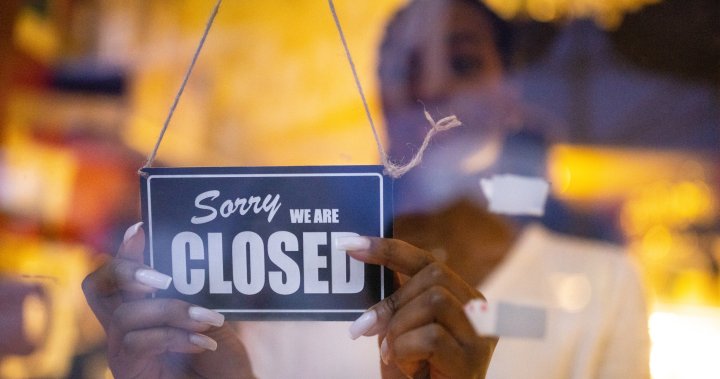
Self-employment hasn’t recovered from pandemic shock. Why the ‘hangover’ persists
Global News
Canada's labour force saw its biggest drop in self-employment since the early days of the COVID-19 pandemic last month. Here's why that matters.
The end of COVID-19 pandemic restrictions and ensuing economic recovery has not meant clear skies for Canadian small business owners like Ryan Dunne.
Dunne and his wife Polly run Winchester Catering and Events, a business they bought four years ago in the small eastern Ontario township of Winchester.
As Ryan Dunne tells Global News, the family had one year of normal operations before the COVID-19 pandemic struck in March 2020 — the month that marked the beginning of rolling lockdowns and acute limits on gatherings like weddings and regular business operations for Winchester Catering and Events.
That new economic reality struck the fledgling business owners hard.
“I thought that was just going to be the end of it,” Dunne says, recalling how the family put most of its savings into the new business with hopes it would turn a profit by year three or four.
“But once the pandemic hit, I didn’t think we would get four or five months down the road before we’d have to walk away from it.”
But Winchester Catering and Events did last. The property was backed by a mortgage from a private lender, whom Dunne says was “very, very reasonable” on payments in the early days before government support started to flow.
The Dunnes converted a bed and breakfast they hosted on the site to a long-term lease, and took on debt as a stopgap for the business’s other revenue holes. The family business pivoted to cater corporate holiday parties in the winter with individually packaged turkey dinners.

 Run 3 Space | Play Space Running Game
Run 3 Space | Play Space Running Game Traffic Jam 3D | Online Racing Game
Traffic Jam 3D | Online Racing Game Duck Hunt | Play Old Classic Game
Duck Hunt | Play Old Classic Game











